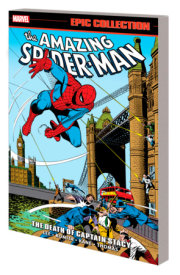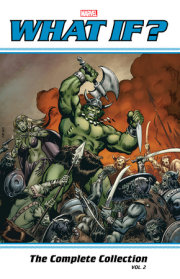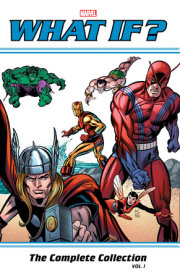Roy Thomas joined the Marvel Bullpen as a writer and editor under Stan Lee, scripting key runs of nearly every title of the time: Amazing Spider-Man, Avengers, Daredevil, Doctor Strange, Sub-Mariner, Thor, X-Men and more. He wrote the first 10 years of Marvel’s Conan the Barbarian and Savage Sword of Conan; and launched such series as Defenders, Iron Fist, Invaders and Warlock. At DC, he developed All-Star Squadron, Infinity Inc. and related titles, proving instrumental in reviving the Golden Age Justice Society of America. Thomas later became editor of Alter Ego, a magazine devoted to comic-book history, and co-scripted the sword-and-sorcery films Fire and Ice and Conan the Destroyer.
As both writer and artist, Archie Goodwin (d. 1998) got his start in comic strips and cartoons before moving to Warren Publishing’s Vampirella — and from there to Marvel, where he eventually succeeded Gerry Conway as editor in chief. He has been credited with saving Marvel from financial ruin, with Roy Thomas, by securing adaptation rights to the legendary Star Wars franchise, perceiving its potential long before later merchandisers. He also wrote comic-book adaptations of Alien, Blade Runner and other hit films. He created both Marvel’s Graphic Novel line and its Epic Comics imprint — where, as editor, he occasionally appeared in caricature as alien, elf or other. He also edited early English translations of the Akira series and the works of Moebius. At DC Comics, he guided the destinies of Batman and Starman; one of his most memorable bodies of work was his collaboration with Walter Simonson on the “Manhunter” backup feature in Detective Comics, which won five Shazam Awards.
Steve Englehart’s history-making contributions to the Marvel Universe began with the Beast’s solo feature in Amazing Adventures, in which the eloquent X-Man first assumed furry form. As Avengers writer, he masterminded such major events as “The Avengers/Defenders War” (in both teams’ titles) and “The Celestial Madonna Saga.” In Captain America, he identified and solved the “mystery” of the 1950s Captain America (later revived by Ed Brubaker), and gave the true Cap the alternate identity of Nomad. Englehart’s Dr. Strange storyline in Marvel Premiere established the character as Sorcerer Supreme and covered the creation of the universe itself. At DC, he helped revamp Batman, Green Lantern, Superman and other major heroes for the 1970s. Back at Marvel, he wrote the first few years of West Coast Avengers and Silver Surfer. His published novels include Countdown to Flight, Hellstorm (part of the TALON Force series), Majorca, The Point Man and, with wife Terry Beach, books in the DNAgers young-adult series. Englehart has also written TV episodes and designed video games.
Beginning as Stan Lee’s production assistant, Herb Trimpe (1939-2015) went on to pencil a seven-year run on Marvel mainstay Incredible Hulk — during which he debuted the future X-Man, Wolverine — as well as 1970s classics Marvel Team-Up, Shogun Warriors and Godzilla. He was equally prolific during the 1980s on Nick Fury, The ’Nam and G.I. Joe; the 1990s saw him illustrate Marvel’s First Family on Fantastic Four Unlimited. Trimpe’s war-story credits also include the introduction of the Phantom Eagle, the WWI aviator hero whose adventures were later chronicled by Garth Ennis.
After a start as inker to his older brother John, Sal Buscema penciled Captain America, Defenders, Incredible Hulk and more. Famed for his ability to meet tight deadlines, he spread his talents across multiple genres. His 1970s work ranged from Ms. Marvel and Nova to Sub-Mariner and Spider-Woman’s first appearance in Marvel Spotlight. He was the uninterrupted artist on Spectacular Spider-Man for more than a hundred issues and penciled the web-slinger’s adventures in Marvel Team-Up, in which he and writer Bill Mantlo introduced Captain Jean DeWolff. After handling more team-ups in the Thing’s Marvel Two-in-One, he reunited with brother John on Steve Englehart’s Fantastic Four. He later provided inks for Tom DeFalco’s Spider-Girl titles and Thunderstrike miniseries.






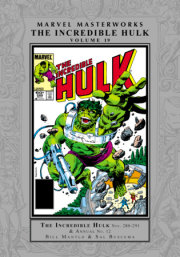
![MARVEL MASTERWORKS: THE SILVER SURFER VOL. 1 [REMASTERWORKS]](https://images.penguinrandomhouse.com/cover/9781302956042?width=180)

![SILVER SURFER OMNIBUS VOL. 1 JOHN BUSCEMA FIRST ISSUE COVER [NEW PRINTING 2]](https://images.penguinrandomhouse.com/cover/9781302963583?width=180)
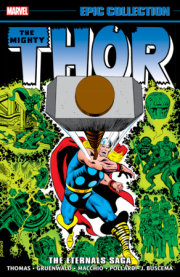
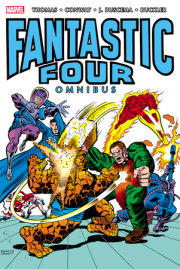
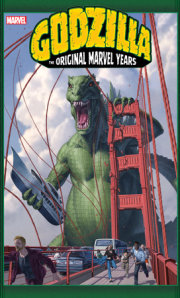
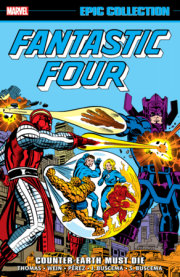
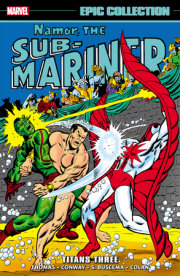
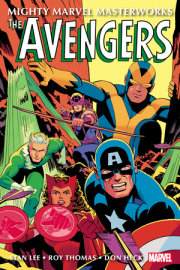
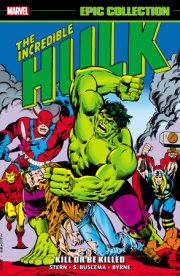
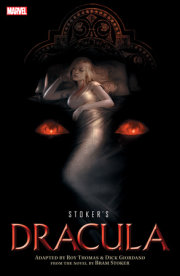
![CAPTAIN AMERICA OMNIBUS VOL. 1 [NEW PRINTING 2]](https://images.penguinrandomhouse.com/cover/9781302957995?width=180)
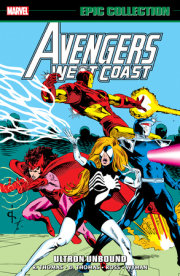
![X-MEN EPIC COLLECTION: CHILDREN OF THE ATOM [NEW PRINTING 2]](https://images.penguinrandomhouse.com/cover/9781302957834?width=180)
![DAREDEVIL EPIC COLLECTION: A WOMAN CALLED WIDOW [NEW PRINTING]](https://images.penguinrandomhouse.com/cover/9781302957933?width=180)
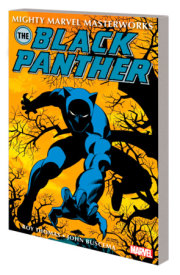
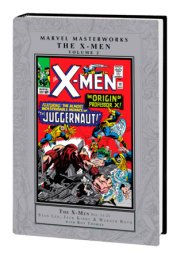
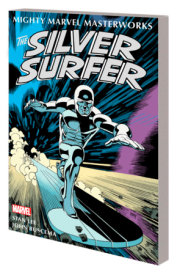

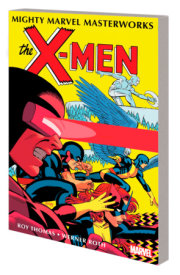
![THE AVENGERS OMNIBUS VOL. 4 [NEW PRINTING]](https://images.penguinrandomhouse.com/cover/9781302953621?width=180)
![THE AVENGERS OMNIBUS VOL. 3 [NEW PRINTING]](https://images.penguinrandomhouse.com/cover/9781302953607?width=180)
![AVENGERS EPIC COLLECTION: THIS BEACHHEAD EARTH [NEW PRINTING]](https://images.penguinrandomhouse.com/cover/9781302950521?width=180)
![THE AVENGERS OMNIBUS VOL. 2 [NEW PRINTING]](https://images.penguinrandomhouse.com/cover/9781302953560?width=180)
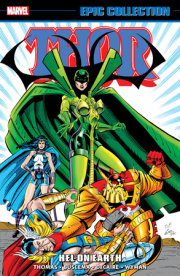

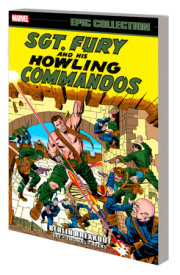
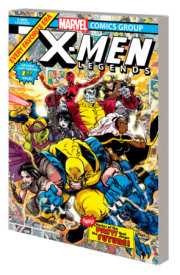

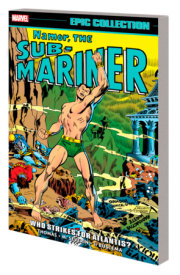
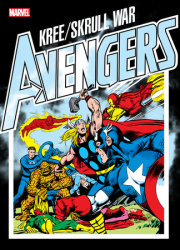
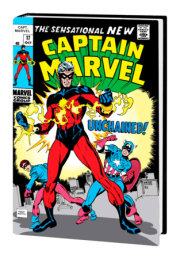
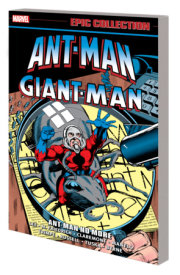
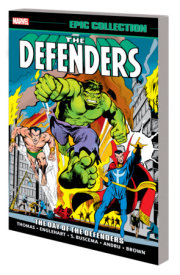
![IRON FIST EPIC COLLECTION: THE FURY OF IRON FIST [NEW PRINTING 2]](https://images.penguinrandomhouse.com/cover/9781302946883?width=180)
